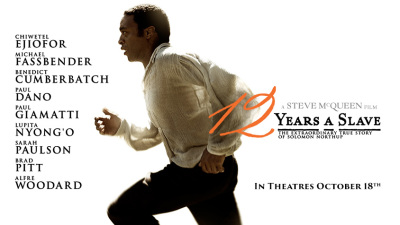'12 Years A Slave' Review: Painful Epic Takes You Through Hell and Back

"12 Years a Slave" is scheduled for release this Friday, Oct. 18, but is already at the center of Oscar Awards chatter this year.
The film offers an unusual and unflattering look at American history in possibly the most honest depiction ever seen on the big screen.
Already a top winner at the Toronto Film Festival, "12 Years A Slave" is based on the true story of Solomon Northup's journey through a nightmarish turn of events during the 1850s.
As a free black man living in New York, Northup is approached to join a traveling band when he is drugged, kidnapped, swiped of his identity, and sold into slavery.
Portrayed by Chiwetel Ejiofor, Northup is badly battered and shipped to a location unknown (presumed to be Louisiana) where he learns to do and say as little as possible, and hide his ability to read and write at all costs.
Director Steve McQueen did not shy away from the atrocities of slavery; and while the cinematography stuns with its beauty, many scenes left viewers flinching and even turning away.
Then, it is on the second plantation that Northup realizes the depths of the hell he has entered when a particularly oppressive cotton plantation owner, Edwin Epps (Michael Fassbender), is giving a sermon. The slave owner manipulates the Bible to perpetuate his dominance over the slaves while reading Luke 12:47.
"That servant, which knew his Lord's will, and prepared not himself, neither did according to his will, shall be beaten with many stripes," Epps quotes in the film.
"That's Scripture," Fassbender's character reasoned, before twisting the words and literally using brute force on enslaved men and women.
Sarah Paulson portrays the only character more deplorable than Edwin Epps- his wife, Mary, whose raging jealousy plagues enslaved Patsey (portrayed by up-and-coming actress Lupita Nyong'o) on the cotton plantation.
"My bed is too holy for you to share," Mary Paulson self-righteously tells her husband during the film.
McQueen optimized use of both silence and singing during the harrowing tale, including one torturously long silent scene where Northup faces punishment hanging by his neck while standing on just one toe submerged in the muddy earth.
Despite the disturbing imagery and stomach-twisting experience in "12 Years A Slave," the drama constantly reminds viewers that God is merciful, as stated by Patsey in the film.
Furthermore, cycles of anger and disappointment followed by hope and solace leave the audience feeling shaken, yet invigorated.
While Pitt occupies about 10 minutes of screen time at the most, his role is a pivotal one that changes the entire course of the film. A seasoned actor could only execute such a role, and the star power of Pitt's name among the film's credits did not go unnoticed.
While promoting "12 Years A Slave," Pitt has repeated several times that the movie and the few like it that "cut to the base of our humanity" are why he chose to become an actor.
It remains to be seen how much moviegoers will be drawn to such a powerful, sometimes painful film; and Oscar winning or not, "12 Years A Slave" will leave a lasting effect in the film industry.



























